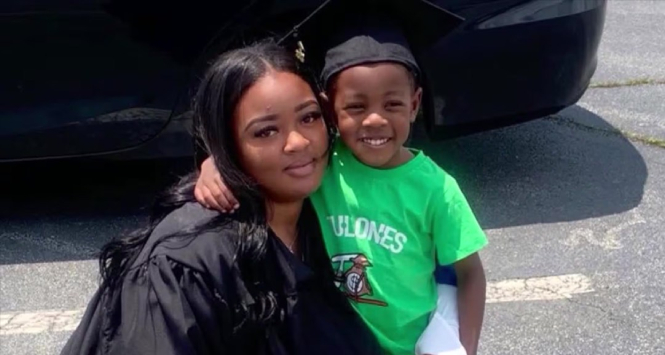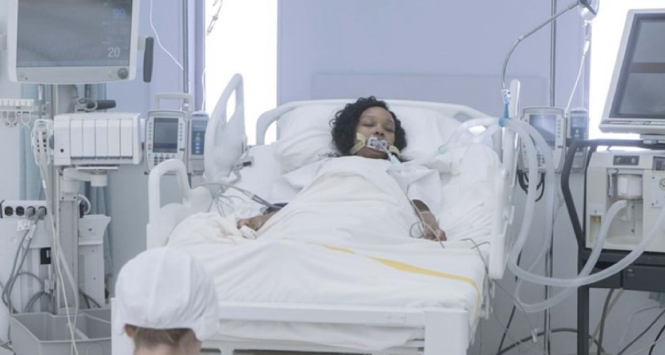In a case both medically complex and emotionally devastating, the family of Adriana Smith, a 27-year-old mother from Atlanta, is living through what they describe as a nightmare that has no clear end.
Adriana, who was declared brain-dead more than 90 days ago, remains on life support—not because of any hope for her own recovery, but because she was pregnant at the time of her medical emergency.
Under Georgia law, which prohibits most abortions once a fetal heartbeat is detected, her family has no choice but to keep her body functioning artificially until doctors can deliver the baby, now referred to as her unborn son.
“It’s torture for me,” said Adriana’s mother, April Newkirk, in an interview with 11Alive News. “I see my daughter breathing, but she’s not there.”
A Preventable Tragedy?

The heartbreaking story began in February, when Adriana, then nine weeks pregnant, began experiencing severe headaches. Concerned, her boyfriend rushed her to a hospital, but her family says no CT scan was performed, and she was sent home without being kept overnight.
The next morning, Adriana was gasping for air in her sleep—what her loved ones now believe was caused by internal bleeding. She was rushed back to the hospital, where doctors finally performed a scan and discovered multiple blood clots in her brain. They initially considered a procedure to remove the clots but ultimately determined it was too late.
Soon after, Adriana was declared brain-dead.
‘She’s Just Sleeping’

Adriana’s young son, now motherless, still believes she’s only “sleeping,” according to her family. And for Newkirk, the emotional weight is almost too much to bear.
“She’s pregnant with my grandson,” she said through tears. “But he may be blind, may not be able to walk, may not survive once he’s born. This decision should’ve been left to us.”
Doctors say the baby must reach 32 weeks gestation before they can attempt delivery—meaning Adriana’s body must remain on machines for weeks longer. Her family, unable to mourn properly or say goodbye, waits in painful limbo, watching the body of their daughter continue to breathe without her mind or spirit present.
Legal and Ethical Questions
Georgia’s abortion law, among the strictest in the country, recognizes an embryo with a heartbeat as a “person,” leaving little legal flexibility even in medically extraordinary cases.
While there is no precedent for the specific intersection of brain death and pregnancy under such laws, Adriana’s case may soon become a pivotal one.
Her family is now not only preparing to raise the baby she will never hold but also bracing for the long-term medical challenges he may face. The fetus has been exposed to prolonged ventilation, uncertain oxygen levels, and medications used to keep Adriana’s body functioning.
“We’re left wondering what kind of life he’ll have—and we’re going to be the ones raising him,” Newkirk said.
A Mother’s Fight Continues—In Spirit
As Georgia’s abortion policies face growing scrutiny, Adriana Smith’s case shines a harsh light on the emotional and ethical consequences such legislation can have on real families.
Newkirk and her grandson, every passing day brings them closer to an uncertain future—and one irrevocably marked by the absence of the daughter they’ve already lost.
